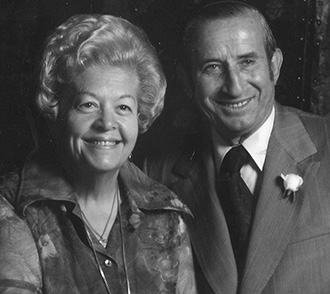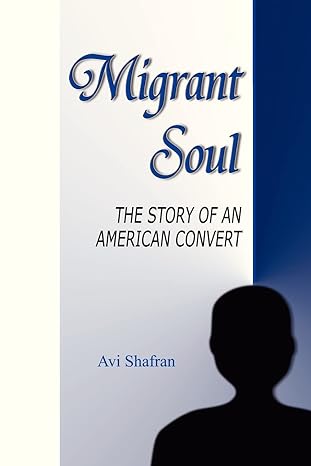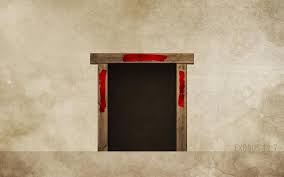A piece I wrote for Religion News Service about “brain death” can be read here.


A piece I wrote for Religion News Service about “brain death” can be read here.

The aron habris, the ark of the covenant that held the luchos, the tablets of the law, consisted of three nested boxes, the middle one of wood, the outer and inner ones of zahav tahor – “pure gold.” Its kapores, or cover, was made entirely of “pure gold.”
Not so the poles that are placed in rings on the sides of the aron – and that are to remain there permanently. Like the aron itself, they are wooden but covered with gold. But only “gold,” not “pure gold” like the aron’s inner and outer boxes.
In his sefer Nachalas Tzvi, Rav Meshullam Gross notes that difference and sees in it the fact that those whose lives are dedicated to Torah-study, symbolized by the aron, must be pure-hearted and not motivated by ulterior motives. Those who support them, however, who are symbolized by the poles with which the aron was carried, may condition their support on other things.
Ulterior motives do not cancel the merit of Torah-support or other meritorious giving. As the Talmud (Pesachim 8a) teaches: “One who says: I am contributing this coin to charity so that my son will live… is a completely righteous person.”
A common ulterior motive in philanthropy is honor. That is why donors’ names on plaques in shuls, Jewish outreach centers and yeshivos, or on the edifices themselves are perfectly proper.
In fact, such displays can constitute great merits in their own rights.
One of the most generous donors to Torah causes was Joe Tanenbaum, whose name, along with his wife Faye’s, graces wonderful institutions not only in his adopted city Toronto but across the globe. As a child, he hadn’t received a thorough Jewish education and he wanted others to have every opportunity to Jewishly educate themselves.
He was, though, by all accounts, a most modest man. A story that made the rounds many years ago is that he was once asked why he wanted his and his wife’s names to be prominent on the facades of the countless Torah-promoting buildings.
His reply was that, in the event that one of his future descendents should for some reason not receive a Jewish education or fall away from the Jewish path, he hopefully imagined the young person seeing the name Tanenbaum on an edifice and, carrying the same surname or knowing it was in his or her genealogy, becoming sufficiently intrigued to enter its doors.
© 2024 Rabbi Avi Shafran

On June 6, 1944, D-Day, more than 150,000 Allied troops stormed the coast of Normandy to begin the liberation of France from the Nazis.
The criteria for choosing that day included a low but rising tide for the seaborne soldiers, a tide that occurred only around the time of a new or full moon. It took place on the latter.
Other military onslaughts throughout history were scheduled based on the moon’s phase – full moons when light was desired; new moons when darkness was needed to limit soldiers’ visibility to the enemy.
Among the 53 mitzvos in parshas Mishpatim is one that, peripherally, involves the moon. And it is one of the most compelling pieces of evidence of the Torah’s divine origin. Because the mitzvah, by all logic, would seem to doom the Jewish people.
On the shalosh regalim, the three “pilgrimage festivals,” all adult Jewish males are commanded to journey to the Beis Hamikdash in Yerushalayim. That, of course, would leave the borders of Eretz Yisrael essentially open to attack by the Jews’ enemies. And two of those festivals were utterly predictable – because they began on the 15th of their Jewish months, one in the spring (Pesach) and one in autumn (Sukkos). Each at the full moon of its month.
Even the most primitive military strategist would have noticed that pattern and would conclude that the land would be most vulnerable to attack on those holidays. Or, in the summer, during the first quarter moon, when the right half of the moon is lit – the holiday of Shavuos.
Which makes the mitzvah of alyah liregel starkly self-defeating. No human lawmaker would be cruel or dim enough to lay down such a law – only a Legislator who could in fact ensure that the populace would not perish as its result. And, of course, it didn’t.
© 2024 Rabbi Avi Shafran

An essay I wrote about the issue of age in the presidential contest was recently published at Religion News Service and can be read here.

When I was a teenager, I wrote a short poem that went:
All could be lies
For we see with our eyes.
Descartes, as I later discovered, beat me by some three centuries at expressing the thought that our senses necessarily mediate reality for us and thus cannot be relied upon to yield absolute truth.
That idea underlies the Rambam’s approach to miracles, that they cannot, on their own, conclusively prove anything at all. In his words: “…because it is possible to perform a wonder through trickery or sorcery” (Mishneh Torah, Hilchos Yesodei HaTorah, 8:1).
Even the plagues in Mitzrayim and the splitting of the sea could not prove anything decisively. (And so, once, when a Christian missionary came to my door to tell me of wonders performed by the object of his veneration, I just smiled and said “That’s very nice” and wished him a good day.)
What then, asks the Rambam, was it that fully convinced Klal Yisrael of Hashem’s existence and role in their exodus from Mitzrayim? His answer: Mattan Torah. (ibid).
As he explains (I paraphrase here), the happening at Har Sinai wasn’t something witnessed but, rather, something experienced. Our ancestors didn’t hear or see Hashem; they met Him intimately. They were imbued with His presence.
Which, I suspect, is the upshot of the words “They saw the thunder and lightning” (Shemos 20:15). The people, Chazal comment on those words, saw what normally can only be heard. Because they weren’t seeing or hearing at all as we normally define those words but rather experiencing the reality of Hashem. The synesthesia indicates that Hashem bypassed their senses entirely and entered their very souls.
Which is why the experience was so traumatic: The very pasuk after the one about seeing sound has the people begging Moshe, “You speak with us… let Hashem not speak with us lest we die.” To use a mundane simile, they had been like overloaded electrical circuits.
But that overload was necessary, if only for the first two dibros. Because it is what established for all generations to come – through the transmission of that experience – the relationship between the Creator and the people he chose to fulfill His mandate and carry His message.
© 2024 Rabbi Avi Shafran

Long ago, I wrote an essay “The Beauty of Anti-Semitism.”
If you’re intrigued by what I meant by that provocative phrase (and it’s something most timely today), please click here.

Our ancestors’ wondering “Is Hashem in our midst or not?” is followed immediately in the Torah by Amalek’s attack (Shemos 17: 7-8). The word expressing Klal Yisrael’s existential doubt – “or not?” – is ayin, which can also be translated “isn’t,” “not there,” or “nothing.”
It’s a word that we find in a seemingly different context in Koheles (3:19), where Shlomo Hamelech says that u’mosar ha’adam min habeheima ayin – “and the superiority of man over animal is nothing.”
Which, as it happens, well encapsulates Amalek’s philosophy. Famously, its name in gematria equals safek, doubt, which reflects Amalek’s conviction that human life is meaningless, just the yield of random evolution, that there is in fact no essential difference between people and animals; and, thus, that there is no ultimate meaning to human life.
That sentiment, of course, isn’t Shlomo’s true conviction; he concludes Koheles with the statement that “kol ha’adam” – the essence of man” – is reverence for Hashem and fulfillment of His directives. The “no difference” pasuk is an unwarranted cry of exasperation, not a description of final fact.
I remember seeing a worthy thought about what that word ayin in the Koheles pasuk might hint at, rendering it not an uninformed cry but, rather, a statement of deep truth.
The first time the word ayin is used in the Torah is in the sentence: vi’adam ayin la’avod es ha’adama – “and man was not yet there to work the land” (Beraishis 2:5).
As Rashi explains, for the first vegetation to emerge, there needed to be rain, and rain would only arrive when there was a consciousness that could appreciate it as a divine gift. The “working” of the land, the avodah alluded to, was thus avodas haleiv, the “work of the heart” – a recognition and declaration of gratitude.
And so, the “difference between man and animal” may in fact be precisely “ayin” – namely, what the word hints at in Beraishis: awareness of Hashem and gratitude for His benevolence, which only conscious human beings can feel and express.
© 2024 Rabbi Avi Shafran

One of our granddaughters told me she is reading my book “Migrant Soul”, which was published back in 1992. It spurred me to read it myself, for the first time in more than two decades. I liked it! It’s out of its original publisher’s print but, if you’re interested, it can be ordered print on demand or in a Kindle version here.

That Yaakov’s descendants are commanded by Hashem to place the blood of the korban Pesach on the doorposts and lintels of their homes’ doors (Shemos 12:7) is certainly intriguing.
Considering that the Gemara on the first amud of massechta Yoma teaches that “baiso zu ishto,” that the word “his home” in the Torah implies “his wife,” blood on the doors of homes would seem to embody the metaphor of niddah. What pertinence could that possibly have here?
That premise, though, is wrong. The Gemara refers to two types of blood, daam niddah and daam leidah. It’s not niddah being metaphorized here, but, rather, leidah, birth.
Because something was indeed born out of the blood-adorned doors in Mitzrayim: a nation. A new collective entity called Klal Yisrael.
In Mitzrayim, the Jews were all related to one another but they could reject that connection. Indeed, many did, and did not merit to leave Mitzrayim, dying there instead.
On their last night in Mitzrayim, though, the rest of the Jews underwent a change. With blood on their doorways and matzoh in their packs, they followed Moshe into the daunting desert, knowing not what awaited them. And became an entity whose members, and descendants throughout history, are part of an organic whole, no matter what any of them may choose to do.
Which is why, in the words of the Gemara, “A Jew who sins is still a Jew,” in every way. There is no longer any option of “opting out” of Klal Yisrael.
And so, blood in Judaism is a symbol not of death, but of birth.
The words of the navi Yechezkel (16:6) poignantly reflect that fact:
Referring to “the day you were born,” Hashem, through the navi, tells His people: “And I passed by you as you wallowed in your blood, and I said to you, ‘in your blood, live.’ And I said to you, ‘in your blood, live’.”
© 2024 Rabbi Avi Shafran

It’s intriguing that when Moshe and Aharon are sent to present themselves to Par’oh and to demonstrate the miracle of a staff turning into a snake, Moshe is commanded by Hashem to tell Aharon to throw his staff to the ground to effect the transformation.
Elsewhere, of course, with two exceptions (hitting the Nile and the ground, because Moshe had been saved by water and earth) it is Moshe’s staff that is used to fulfill divine commandments, as in the splitting of the sea and, in the desert, the hitting of the rock to bring forth water. But here, why isn’t Moshe the one charged to cause the miracle?
A lesson may lie in the oddity. Moshe, we remember, was earlier, at the burning bush, told to throw his staff to the ground, where it turned into a snake (Shemos 4:2,3). There, the command was issued after Moshe expressed doubts about whether the Jews would listen to him.
And, as Rashi explains there, the transformation of the staff was not meant as some demonstration of miraculousness but rather as a rebuke to Moshe, for having doubted the Jewish people’s willingness to hear His message.
So perhaps the reason Hashem wanted Aharon and not Moshe to perform the demonstration before Par’oh was to spare Moshe embarrassment over the memory of the rebuke he had earlier received. The reminder, of course, was still there, in a staff turning into a snake. But at least Moshe himself was not asked to perform the very action that had telegraphed the rebuke.
The Mishna (Bava Metzia 58b) says that one may not remind a repentant sinner of his prior deeds, nor a convert’s son of those of his ancestors. Perhaps the lesson here of Aharon being given the order to throw the staff down is that even a subtle reminder can be a source of embarrassment to another, and thus, something to carefully avoid.
© 2024 Rabbi Avi Shafran